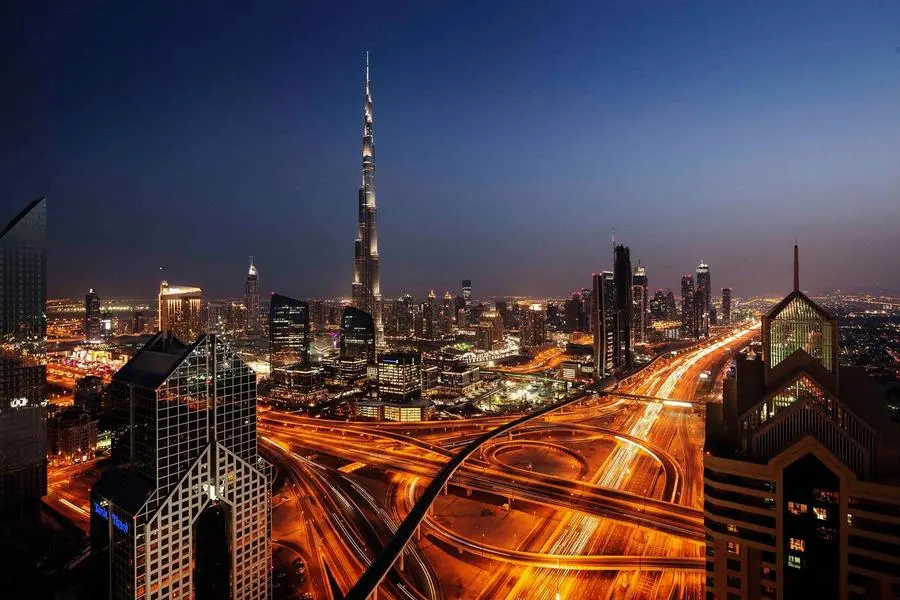PHOTO
Dubai’s economy looks set to expand by an estimated 3.3% in 2017, according to forecasts from the IMF, up from 2.9% in 2016 and well above the organisation’s projections for the wider UAE economy of 1.3%. Solid increases in foreign trade and infrastructure investments have been major drivers of growth.
Data issued by the Emirates NBD Dubai Economy Tracker Index at the beginning of November point to heightened activity in the later part of the year across key sectors of the economy, including construction, which posted its highest output growth for two years in October, and retail.
The index had reached 55.6 points by the end of October, up from 55.2 in September, and well above the 50-point cut-off that marks the difference between growth and contraction, putting Dubai on course to finish 2017 on a high.
The upwards trajectory is expected to continue into 2018; the IMF has forecast GDP growth of 3.5% for the year, supported by an anticipated rebound in energy prices and general business activity in the region.
Building works a major contributor to growth
Growth in the construction sector is being supported by a combination of projects for Expo 2020 and solid activity across the residential component of the industry.
According to a report prepared for Dubai’s annual construction industry fair, The Big Five, held at the end of November, around $8bn has been invested in transport and infrastructure projects related to the expo, while works at the site itself are valued at between $2bn and $4bn.
By late November the value of construction contracts awarded in 2017 and linked to Expo 2020 had reached Dh10.8bn ($2.9bn), just short of the targeted Dh11bn ($3bn), creating a substantial project pipeline.
Both the residential and commercial components of the property market witnessed heightened activity this year, delivering just over 29,000 units, according to a recent report by brokerage firm fäm Properties.
Going forward, the sector is likely to remain a key driver of growth, even though commercial and residential project delivery looks to have spiked in 2017. A total of 27,360 units are scheduled for completion in 2018, with 19,850 slated for the following year, according to the fäm Properties report. The launch of additional developments in 2018 and beyond should help the construction industry maintain momentum in the near term.
Tourism strong, trading up
Tourism also contributed to growth in 2017, with international overnight visitors up 7.5% in the first nine months of 2017 compared to the same period the previous year, according to data issued by the Department of Tourism and Commerce Marketing (DTCM) in early November.
However, increased capacity meant that year-on-year (y-o-y) hotel occupancy rates for the third quarter remained relatively static at 76%.
Hotel capacity is set to continue rising, according to a report by research firm STR. The project pipeline includes 95 hotels, boosting the number of rooms by 29,000 and bringing the total number of rooms available to 135,000.
Higher levels of foreign trade have also provided the emirate with a boost. Data issued in mid-November by the DTCM showed a rise in non-oil-sector foreign trade of 13% in the third quarter compared to the same period last year, to Dh344bn ($93.7bn), taking the nine-month total to Dh985bn ($268.2bn), a y-o-y gain of 3.5%.
Value-added tax set for January launch
Inflation remained modest throughout 2017. The general consumer price index (CPI) stood at 2.37% at the end of the third quarter, according to figures issued by the Dubai Statistics Centre, down from 3.12% in June and an end-2016 figure of 2.91%.
A broad-based goods and services tax set to come into force in Dubai and across the UAE on January 1 is expected to weigh on the CPI, albeit modestly. The 5% levy will be applied to most goods and services, although according to the Dubai Chamber of Commerce and Industry, many companies, especially smaller outfits, have yet to complete their value-added tax registration and meet compliance requirements.
The IMF said it expected inflation in the UAE to rise to 2.9% next year, before easing to 2.5% in 2019.





















